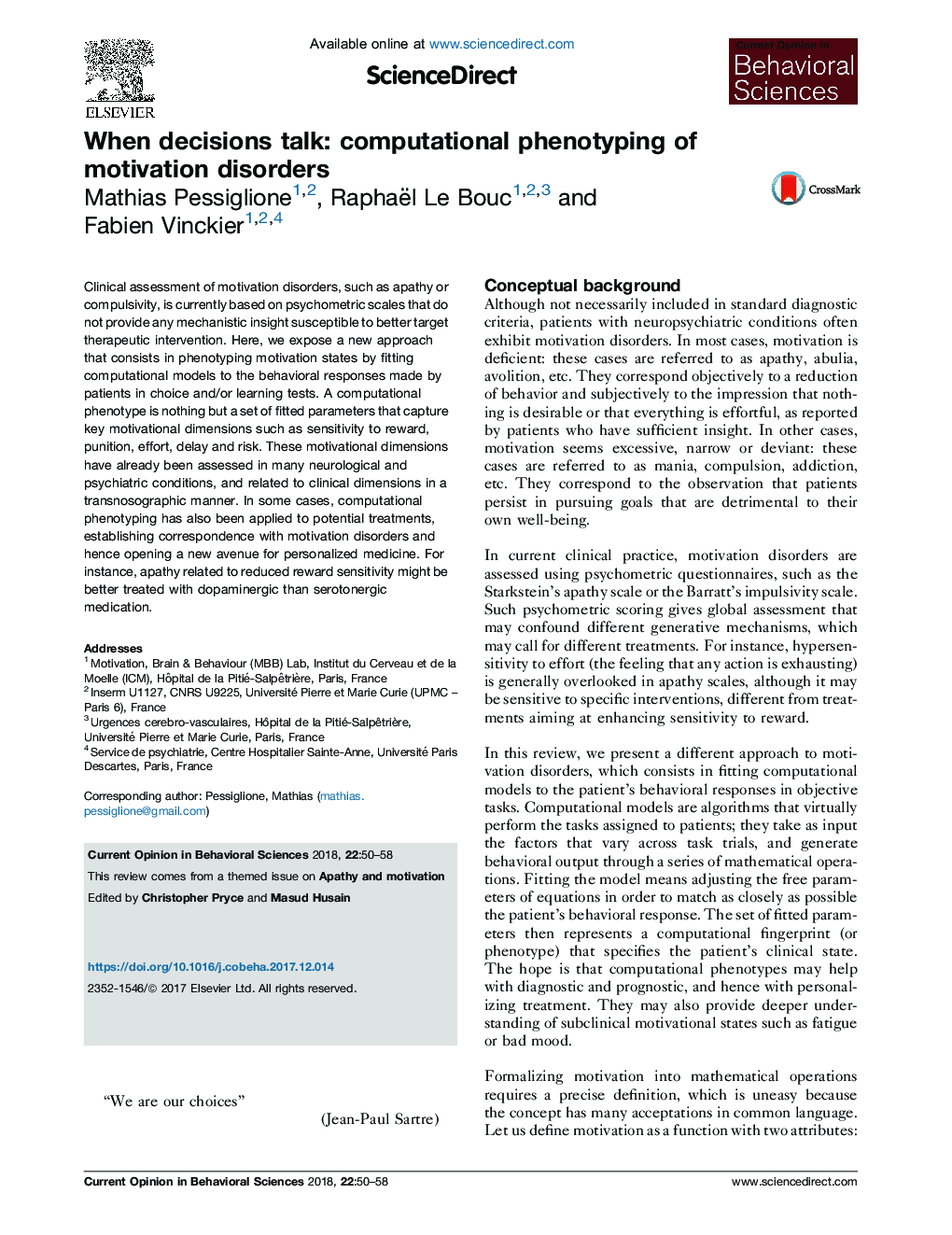| Article ID | Journal | Published Year | Pages | File Type |
|---|---|---|---|---|
| 8838089 | Current Opinion in Behavioral Sciences | 2018 | 9 Pages |
Abstract
Clinical assessment of motivation disorders, such as apathy or compulsivity, is currently based on psychometric scales that do not provide any mechanistic insight susceptible to better target therapeutic intervention. Here, we expose a new approach that consists in phenotyping motivation states by fitting computational models to the behavioral responses made by patients in choice and/or learning tests. A computational phenotype is nothing but a set of fitted parameters that capture key motivational dimensions such as sensitivity to reward, punition, effort, delay and risk. These motivational dimensions have already been assessed in many neurological and psychiatric conditions, and related to clinical dimensions in a transnosographic manner. In some cases, computational phenotyping has also been applied to potential treatments, establishing correspondence with motivation disorders and hence opening a new avenue for personalized medicine. For instance, apathy related to reduced reward sensitivity might be better treated with dopaminergic than serotonergic medication.
Related Topics
Life Sciences
Neuroscience
Behavioral Neuroscience
Authors
Mathias Pessiglione, Raphaël Le Bouc, Fabien Vinckier,
